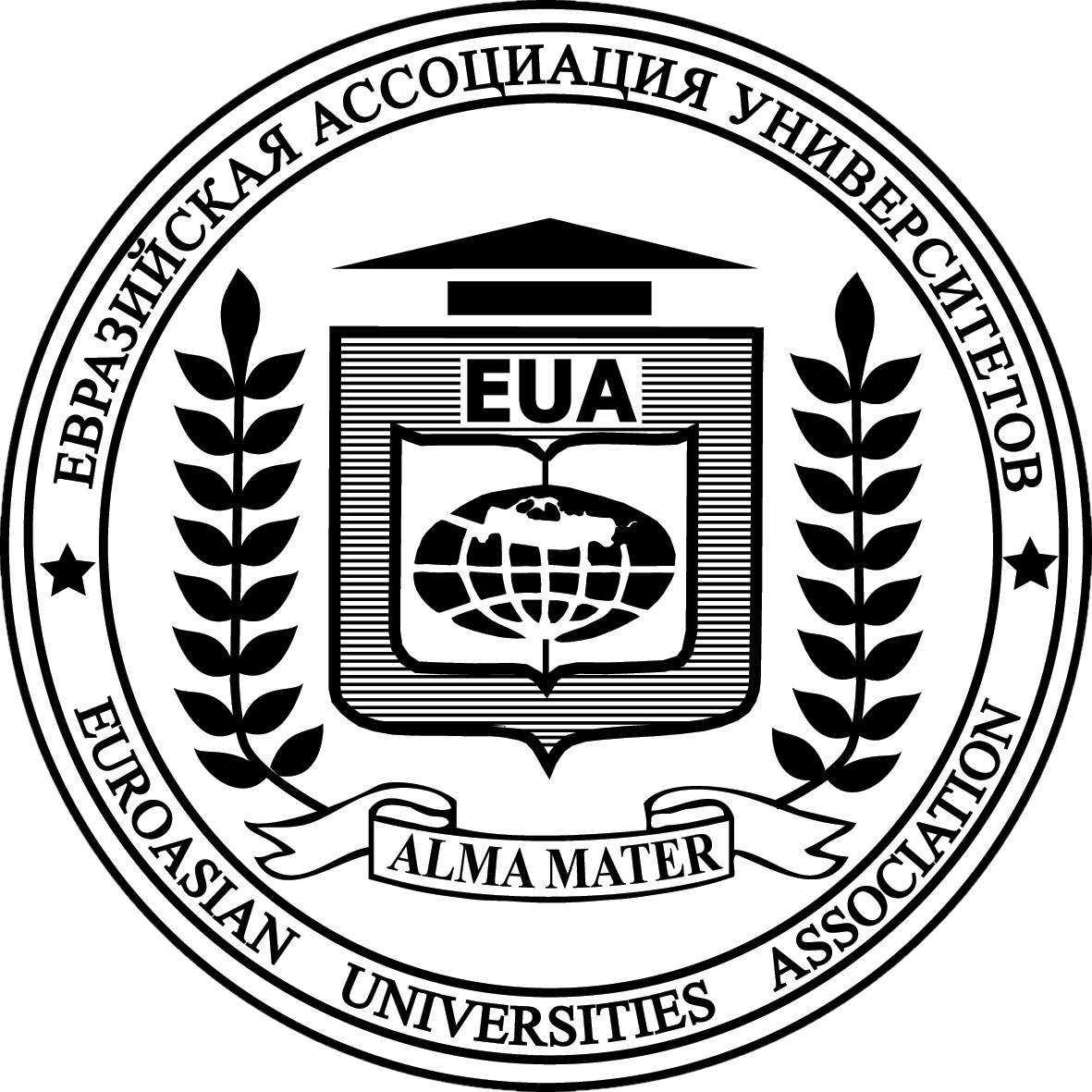
Уважаемые коллеги! Уважаемые гости сайта!
Евразийская ассоциация университетов была создана на Учредительном съезде в 1989 году как Ассоциация университетов СССР по инициативе Московского государственного университета имени М.В.Ломоносова, поддержанной двадцатью крупнейшими университетами Советского Союза. В 1992 году Ассоциация была преобразована в Евразийскую ассоциацию университетов.
Сегодня Евразийская ассоциация университетов (ЕАУ) - авторитетная и влиятельная международная организация университетов. В неё входят национальные университеты всех стран СНГ, ведущие региональные университеты и высшие учебные заведения стран Евразийского пространства.
В настоящее время Евразийская ассоциация объединяет университеты Азербайджана, Армении, Беларуси, Грузии, Казахстана, Кыргызстана, Молдовы, России, Таджикистана, Туркмении, Узбекистана и Украины.
Высшим руководящим органом Евразийской ассоциации является Съезд Ассоциации. Всего состоялось 15 съездов Ассоциации: Они проходили в Москве, Киеве, Баку, Ашхабаде, Казани, Минске, Астане.
1989 год – I съезд, Учредительный, г. Москва
1990 год – II съезд, г. Киев
1991 год – III съезд, г. Баку
1992 год – IV съезд, г. Москва
1993 год – V съезд, г. Ашгабат
1995 год – VI съезд, г. Казань
1997 год – VII съезд, г. Москва
1999 год – VIII съезд, г. Минск
2002 год – IX съезд, г. Киев
2007 год – X съезд, г. Москва
2009 год – XI съезд, г. Астана
2011 год – XII съезд, г. Москва
2015 год - XIII съезд , г. Санкт-Петербург
2019 год - XIV съезд, г. Москва
2023 год - XV съезд, г. Москва
На Съездах ЕАУ рассматривались проблемы развития национального образования, задачи сохранения единого образовательного пространства и обеспечения эквивалентности университетских дипломов, развития сотрудничества университетов – членов Ассоциации в области образования и университетской науки, основные учебно-методические вопросы совершенствования университетского образования.
В период между Съездами руководство Ассоциацией осуществляется Советом и Исполнительным комитетом.
Важное направление деятельности Ассоциации – работа с молодежью и трудовыми коллективами университетов. ЕАУ учреждены Студенческая ассоциация университетов стран СНГ и Евразийская ассоциация профсоюзных организаций университетов, которые регулярно проводят свои съезды и мероприятия, направленные на укрепление связей. При Ассоциации действуют центры по отдельным направлениям сотрудничества университетов стран СНГ.
Евразийская ассоциация университетов аккредитована при Межпарламентской Ассамблее стран СНГ и Совете по сотрудничеству в области образования государств – участников СНГ. Она взаимодействует с другими международными организациями университетов.
Свою деятельность Ассоциация осуществляет через многочисленные конференции, форумы, межвузовские связи и контакты.
Евразийская ассоциация университетов (ЕАУ) является учредителем и организатором международных научно-практических конференций «Университеты и общество», которые завоевали большой авторитет университетского сообщества и широкое международное признание. В конференциях принимало участие более тысячи профессоров и преподавателей вузов стран СНГ, других стран, представители Международных организаций. О высоком уровне и авторитете конференций свидетельствовало то, что приветствия в их адрес были направлены руководителями стран СНГ: Азербайджана, Армении, Беларуси, Казахстана, Кыргызстана, России, Таджикистана, Узбекистана и Украины.
Евразийская ассоциация университетов выступила одним из инициаторов углубления гуманитарного сотрудничества стран СНГ. Президент ЕАУ, академик РАН Садовничий В.А. является сопредседателем Форума творческой и научной интеллигенции государств – участников Содружества Независимых Государств.
Результаты обсуждений и исследований университетов Ассоциации опубликованы в коллективных монографиях и совместных работах по итогам конференций.
С 2009 года ЕАУ начала выпуск серии монографий «Евразийские университеты XXI века». Презентация первой монографии «Об образовании. Евразийское пространство» состоялась в дни работы XI съезда Евразийской ассоциации в Астане и была посвящена основной сфере нашего взаимодействия, а также 20-летнему юбилею Евразийской ассоциации университетов. Второе издание монографии «О научных исследованиях и научных школах. Евразийское пространство» вышла к началу работы III Международной научно-практической конференции «Университеты и общество», третье издание «Экологические проблемы. Евразийское пространство» (2014 г.) подготовлено к ХIII съезду ЕАУ. Монография посвящена важной проблеме всего человечества – решению экологических проблем и обеспечению устойчивого развития, и отражает пути совершенствования этой работы университетами Евразийской ассоциации. Монография «Университеты в евразийском образовательном пространстве» издана в 2017 г. и посвящена деятельности университетов в евразийском образовательном пространстве в современных условиях. В 2019 году к 30-летнему юбилею Евразийской ассоциации университетов издана коллективная монография «Три миссии университета: образование, наука, общество» о деятельности университетов в реализации их миссии в современных условиях. Монография дает широкую картину тех изменений, которые происходят в университетах.
Евразийская ассоциация университетов - уникальная общественная организация на Евразийском пространстве. Все годы своей деятельности она осуществляет мероприятия, направленные на практическую реализацию идей евразийства в сфере образования и науки, сохранения и развития единого образовательного пространства и гуманитарного сотрудничества, на освоение мирового опыта реформирования высшего образования в конкретных условиях формирования новых государств на постсоветском пространстве. Обмен опытом, творческие дискуссии университетов на принципах уважения к опыту друг друга стали важным фактором прогресса образования и науки на Евразийском пространстве и в мире.
Вступление в Ассоциацию осуществляется на основе заявления от имени ректора конкретного университета, которое рассматривается Советом Ассоциации. Решение о приеме принимает Съезд Ассоциации.
Вступление в ЕАУ
Вступление в Ассоциацию осуществляется на основе заявления от имени ректора конкретного университета, которое рассматривается Советом Ассоциации. Решение о приеме принимает Съезд Ассоциации. Необходимо также предоставить сопроводительные документы о высшем учебном заведении.
Устав ЕАУ
